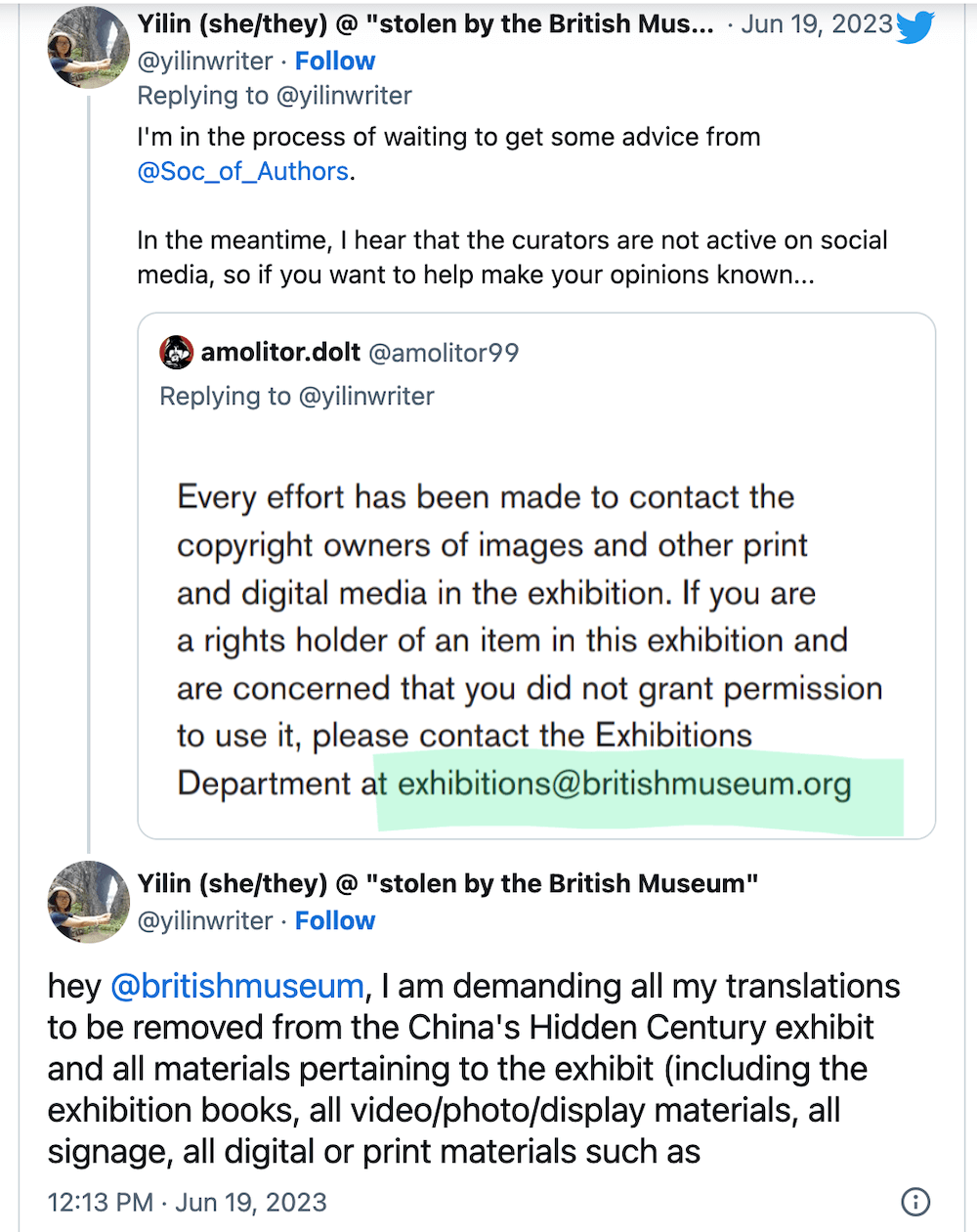The British Museum is in hot water after a translator has accused the museum of plagiarizing her translations in its ongoing “China’s Hidden Century” exhibition.
The exhibition, which opened at the museum May 18 and goes on through Oct. 8, features the poetry of Qiu Jin, a Chinese revolutionary and writer known for spearheading women’s rights (she was once called China’s “Joan of Arc” by the New York Times). Alongside the display of the original Chinese text, however, are English translations that are suspiciously close (that is, identical) to those published by translator Yilin Wang on her personal blog in 2021. 文章源自The Economist Digest-https://te.qinghe.me/12254.html
文章源自The Economist Digest-https://te.qinghe.me/12254.html
“Um, hey @britishmuseum, it’s come to my attention that your exhibit ‘China’s hidden century’ uses my translations of Qiu Jin’s poetry, but you never contacted me for permission,” Wang wrote in a tweet on June 17. “Please note this is a copyright infringement! How are you going to fix this??”文章源自The Economist Digest-https://te.qinghe.me/12254.html
The museum released a statement shortly after Wang’s Twitter thread gained traction — in the statement, the museum notes that it has removed all of Wang’s translation from the exhibition and will compensate the translator for the translations for the period in which they were on display.文章源自The Economist Digest-https://te.qinghe.me/12254.html
“The British Museum takes copyright permissions seriously,” the statement reads. “Across the range of our work, we make every effort to contact the owners of rights in text, images, print, and digital media. This was a particularly complicated project and we recognize we made an inadvertent mistake and fell short of our usual standards.”文章源自The Economist Digest-https://te.qinghe.me/12254.html
Translations hold an interesting place in copyright law — they’re generally considered derivative works, a legal term used to describe a creative work that draws heavily on and includes copyrightable components from another, original work. Typically, the translator owns the copyright to any derivative work, unless it was commissioned by the original creator.文章源自The Economist Digest-https://te.qinghe.me/12254.html
This is the case even for original works that are considered to be in the public domain — while the original creation may not be copyrighted, translators hold copyright ownership of any translations they create of public domain.文章源自The Economist Digest-https://te.qinghe.me/12254.html
“This has been an incredibly and needlessly frustrating experience after experiencing copyright infringement,” Wang wrote on Twitter.文章源自The Economist Digest-https://te.qinghe.me/12254.html 文章源自The Economist Digest-https://te.qinghe.me/12254.html



Comments